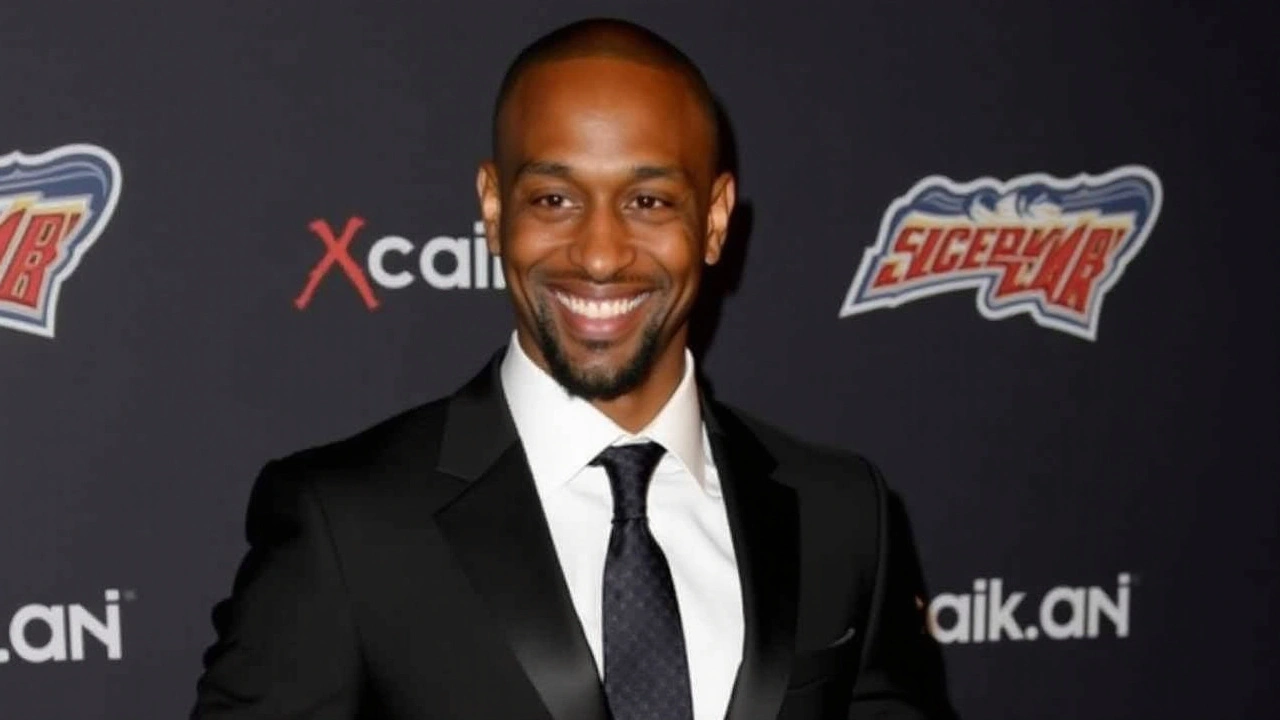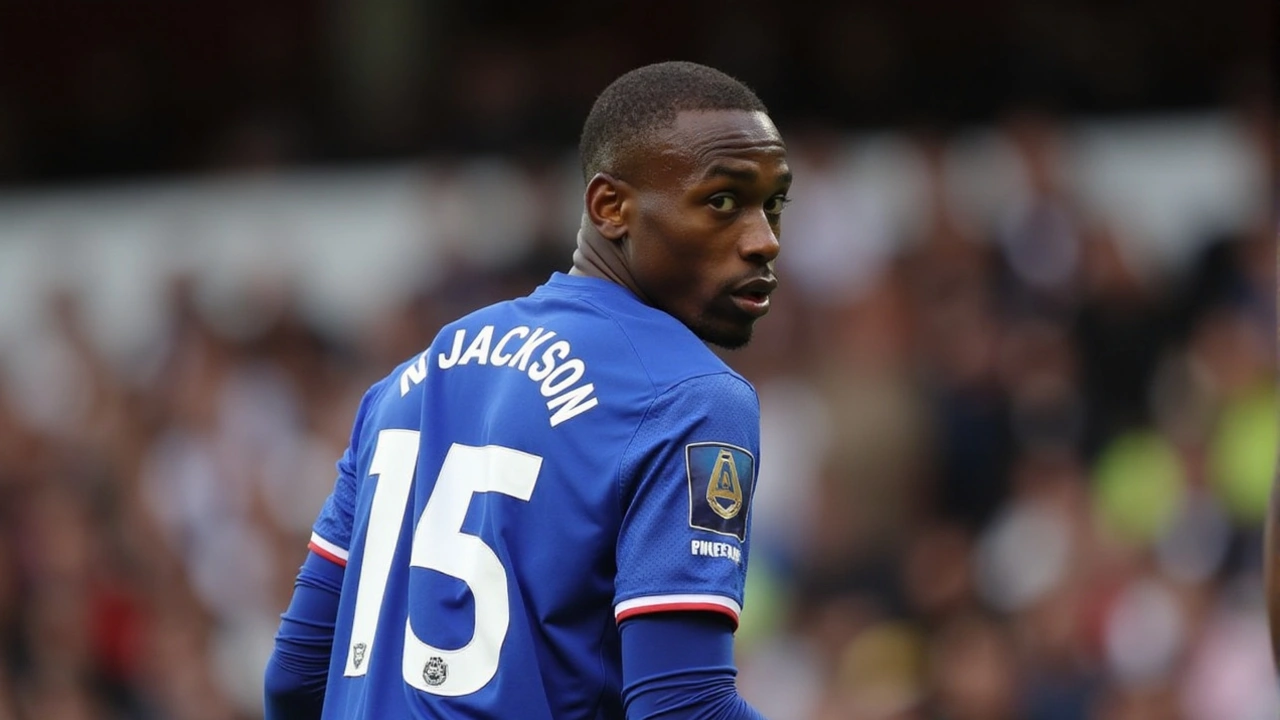Nicolas Jackson's Outburst Against John Mikel Obi
In a dramatic turn of events, Chelsea striker Nicolas Jackson launched a scathing attack against club legend John Mikel Obi. The incident unfolded after Jackson was criticized by Mikel for his performance during Chelsea’s 2-0 defeat to Manchester City on the opening weekend of the season. Mikel, who has transitioned into a television analyst for beIN Sports, suggested that Chelsea might need to scout for a more reliable striker. He mentioned Victor Osimhen of Napoli as a potential candidate, sparking a heated response from Jackson on social media.
Performance Criticism and Its Repercussions
John Mikel Obi's comments resonated strongly, but not positively, with Nicolas Jackson. Highlighting Jackson's wastefulness during the match, Mikel's critique seemed aimed at spurring improvement within the player ranks. However, Jackson chose to respond publicly via Instagram, tagging Mikel directly in his fiery post. The striker brusquely advised the former Chelsea star to 'shut your mouth,' adding that 'we are killing ourselves for Africa,' an ambiguous remark that stirred further controversy.
Emotional Reactions and Social Media Dynamics
The timing of Jackson's outburst could not have been more unfortunate. It occurred shortly after his teammate, Noni Madueke, had to apologize for derogatory comments directed at Wolverhampton. In the case of Jackson, his emotions were likely exacerbated by his notable performance against Wolves. Jackson scored the opening goal and provided an assist in Chelsea's emphatic 6-2 victory, which also marked new manager Enzo Maresca’s first win with the team. This juxtaposition of a strong performance with an emotional outburst highlights the volatile mix of pressure, criticism, and public scrutiny faced by top-tier players.
Challenges for Manager Enzo Maresca
The incident places yet another challenge in the path of newly appointed manager Enzo Maresca. As he strives to stabilize Chelsea's performance, Maresca must also navigate the unpredictable terrain of player behavior on social media. His initial victory against Wolves was a promising start, but the underlying issues of decorum and professional conduct persist. Jackson's vehement response to Mikel Obi's comments underscores a need for stronger guidance and conflict management within the squad.
Broader Implications and Responsibilities
Football, being a sport of high stakes and intense emotions, often sees players venting frustrations in public forums. However, such incidents underline the importance of maintaining a professional demeanor and the ramifications of public outbursts. For Nicolas Jackson, the need to harness criticism constructively could significantly impact his career trajectory. For John Mikel Obi, accustomed to the pressures of both playing and analysis, the role of critic carries with it the responsibility to balance honesty with empathy.
Cultural and Emotional Contexts
Jackson's phrase 'killing ourselves for Africa' adds a layer of cultural and emotional complexity to the debate. It seemingly evokes a sentiment of playing not just for the club, but for a broader, culturally significant cause. This highlights the multifaceted pressures facing athletes from diverse backgrounds who are often seen as representatives of more than just their teams. Such layers of meaning demand careful navigation by both players and commentators, ensuring that performance critiques are grounded in constructive feedback rather than personal attacks.

The Road Ahead
Looking forward, the Chelsea squad will need to close ranks and direct their energies positively on the pitch. Maresca's challenge will be to foster an environment where players grow from critiques rather than lash out. The role of experienced analysts like Mikel is crucial too; their commentary should inspire rather than provoke. The broader football community can take this episode as a learning point, emphasizing the value of constructive dialogue and the responsible use of public platforms.
For fans and stakeholders, such events serve as a reminder of the human element behind the sport. Amid victories and defeats, the emotional and psychological demands on players are immense. Balancing performance with professionalism, particularly in the digital age, remains a crucial aspect of modern football. The narrative between Nicolas Jackson, John Mikel Obi, and Chelsea FC underscores the continuous evolution of the game, reminding us all of the delicate interplay between personal pride, professional responsibility, and public perception.

Jasmine Hinds
August 26, 2024 AT 18:11Let's rally behind the lads and keep the vibes high! :)
Madison Neal
August 26, 2024 AT 18:13Totally feel the pressure that young talent like Jackson faces when seasoned pros weigh in. The critiques often blend tactical nuance with personal expectations, which can feel overwhelming. While Mikel’s analysis is rooted in experience, the delivery can unintentionally trigger defensive instincts. It’s crucial we recognize that growth stems from constructive dialogue, not just blunt commentary. The club’s culture should foster mentorship over mere punditry.
John Crulz
August 26, 2024 AT 18:15Seeing a star striker heat up on social media after a loss isn’t new, but the stakes at Chelsea magnify every reaction. Jackson’s outburst underscores how thin the line is between confidence and frustration. Both sides could benefit from a cooler head and a focus on collective improvement. Let’s hope the manager can steer the conversation back to the pitch.
Anita Drake
August 26, 2024 AT 18:16When Jackson invokes “killing ourselves for Africa,” he’s tapping into a deeper narrative about representation and pride. Players from diverse backgrounds often shoulder the weight of entire continents, which adds extra emotional layers to their performance. Acknowledging that pressure can help fans and analysts frame critiques more empathetically. It’s not just about club victories; it’s also about the broader social impact.
Eduardo Lopez
August 26, 2024 AT 18:18Public platforms demand a level of decorum that many athletes forget, especially when they think fame shields them. Speaking out of turn not only reflects poorly on the individual but also tarnishes the club’s image. Jackson’s incendiary comment is a textbook example of misguided bravado. Fans deserve more professionalism, and the team should enforce stricter social media guidelines. Respect for legacy figures like Mikel should be non‑negotiable.
Nancy Perez de Lezama
August 26, 2024 AT 18:20Honestly this drama feels overblown and distracts from the real game.
Matt Heitz
August 26, 2024 AT 18:21It’s disheartening to watch a national talent like Jackson prioritize personal grievances over his duty to the club and country. When you’ve been groomed to wear the blue shirt, you owe the supporters a higher standard of conduct. Social media outbursts erode the unity that fuels our collective success on the pitch. Moreover, critiquing a fellow Nigerian-Mikel-adds an unnecessary layer of intra‑community conflict. The focus should remain on elevating the team’s performance, not inflaming personal feuds. A disciplined approach would serve both his career and the broader aspirations of English football.
Susan Mark
August 26, 2024 AT 18:23From a tactical standpoint, Jackson’s contributions against Wolves were undeniably impactful, yet the off‑field narrative can’t be ignored. Players often channel frustration into performance spikes, but sustained growth requires emotional regulation. The coaching staff might consider integrating media training into the development program to mitigate future flare‑ups. By aligning on‑field excellence with off‑field maturity, Chelsea can build a resilient squad.
Jason Jennings
August 26, 2024 AT 18:25Sure, as if a simple media workshop will fix everything; the real issue is talent mismanagement.
Diego Vargas
August 26, 2024 AT 18:26Just a heads up, Jackson’s Instagram post was actually deleted after a few hours, likely due to club intervention.
Alex Lee
August 26, 2024 AT 18:28This is why we need stricter rules on player posts.
Vida Yamini
August 26, 2024 AT 18:30Chelsea’s recent turbulence offers a valuable teaching moment for both the players and the staff.
Young talents like Jackson are undeniably gifted but they also need guidance in handling criticism.
A balanced approach that blends technical training with emotional intelligence can produce sustainable results.
The club should foster an environment where feedback is delivered constructively rather than confrontationally.
Mikel’s role as an analyst is to enlighten the audience and inspire improvement, not to provoke outrage.
When a seasoned figure shares observations, it is an opportunity for the squad to reflect and adapt.
Conversely, players must remember that their platforms carry weight and influence beyond personal venting.
Social media can amplify both positive and negative messages, so discipline is essential.
Coaching staff could implement regular workshops on media conduct and mental resilience.
These sessions would equip players with tools to transform pressure into performance.
Moreover, a clear internal code of conduct can set expectations and reduce misunderstandings.
The manager, Enzo Maresca, has a pivotal role in modelling professionalism and composure.
His early success against Wolves shows he can inspire confidence, but consistency will be key.
If the team rallies around shared values and mutual respect, the on‑field chemistry will follow.
Ultimately, nurturing talent while upholding standards will benefit the club, its fans, and the broader football community.